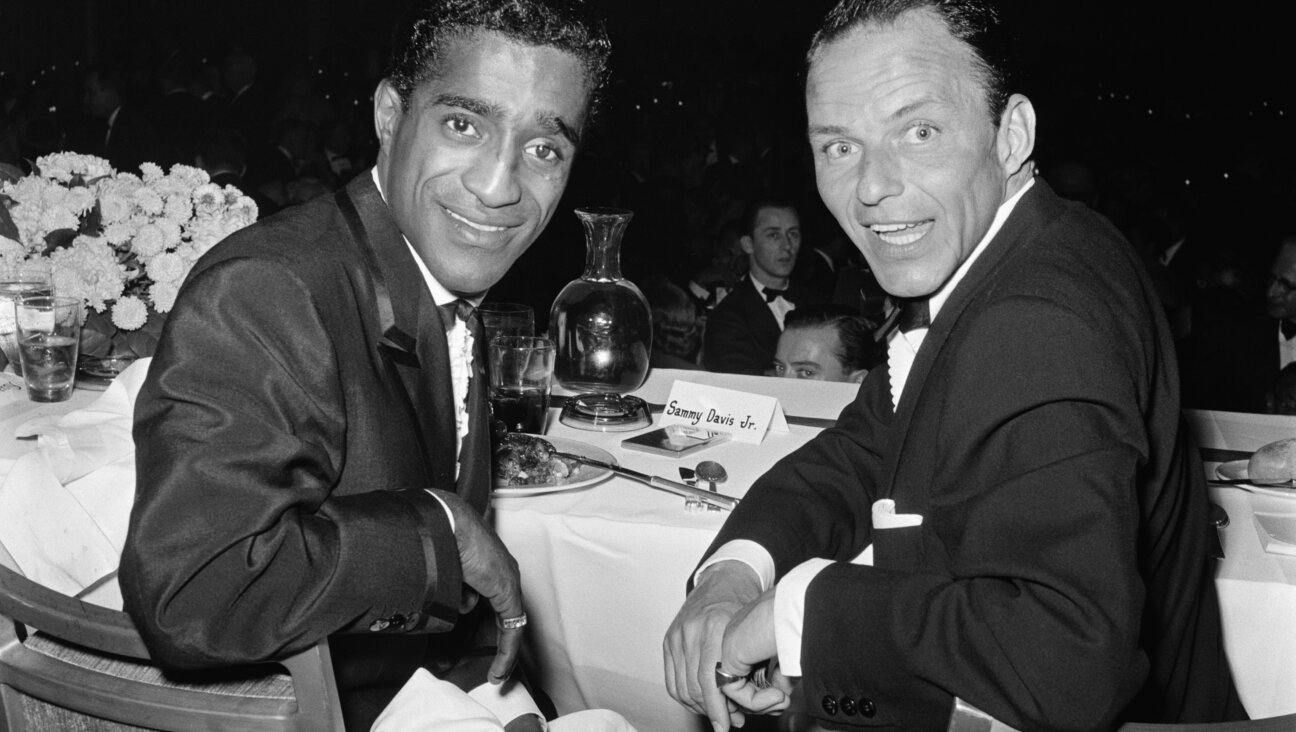Disobedience As An Article of Faith
Conscience: The duty to obey and the duty to disobey
By Rabbi Harold M. Schulweis
Jewish Lights, 160 pages, $19.99.
Quoting Yeats’s famous image of a center that cannot hold and the anarchy that is thereby loosed upon the world, Rabbi Harold Schulweis begins the final chapter of his short book “Conscience” by asking, “Who, during such unstable times as ours, can quarrel with the call for heightening obedience to authority?” What’s refreshing about “Conscience” is that Schulweis in fact does quarrel with this call. His book is a brief for, if anything, disobedience.
“Conscience” offers a bracing reminder of how deep in the Jewish tradition lies the practice of speaking truth to authority — indeed, of saying no to authority — and of how powerful that tradition can be in enabling us to say no when conscience so requires.
Schulweis’s title alone scarcely reveals his topic, and we’re grateful for the subtitle: “The Duty To Obey and the Duty To Disobey.” Schulweis chooses “conscience” to mean this ability to say no to authority — to disobey when morality, here contrasted with authority, calls for it. It’s not a wholly odd choice; we are often said to ‘appeal to our conscience’ when saying no. But that’s because “conscience” refers to our “inner sense” of what is right, and therefore, conscience (like its namesake, consciousness) is usually invisible, and noticed only in times of disjunction. But it is definitely odd to use “conscience” to designate our capacity for moral resistance rather than what we might appeal to in such resistance.
Making this choice has unwelcome effects. In the first place, it leads us to view our moral life as consisting largely of issues of obedience and disobedience. Apart from the fact that many aspects of living well do not involve questions of obedience, Jewish tradition is rich in other ways of thinking about moral decision and choice. Virtue ethics, for example, which Maimonides takes from Aristotle and elaborates on so persuasively, sees moral choice as the culmination of deliberation made possible by appropriate states of character — that is, by virtues. And obedience, if it is a virtue, is only one among many.
In the second place, conscience, figured by Schulweis as morality writ large, comes to be contrasted with law. We’re invited to think of the moral as the realm in which we question and stand up to authority. Schulweis assures us that his book is not “a brief for antinomianism,” which he describes as “freedom from the discipline of law.” Certainly it’s not that. But it is oddly antinomian in its tendency to oppose morality and law to each other.
Most perplexing is when “conscience” leads Schulweis to speak of “a duty to disobey.” Even the question of whether we have a duty to obey is vexed. Many view the rightness of obedience in any given case as grounded in the rightness of what is commanded, and thus grounded in our duty to do what is right, not in our duty to do what someone commands. But whatever we may think about the duty to obey, there is no such thing as a duty to disobey — that is, a duty to disobey as such. If it is right to disobey an authoritative command, it must be because what is commanded is wrong. In that case, we may have a duty to disobey that particular command, but we don’t have a duty to disobey as such; what we really have is a duty to avoid doing what is wrong. And although the ability to recognize something as wrong may actually be the office of conscience, it doesn’t follow that conscience grounds any notion like that of a duty to disobey as such.
Sometimes, Schulweis gets it just right, as when he speaks of “the religious duty to disobey bad laws in the name of Jewish moral conscience.” Knowing how to get these matters “just right” takes careful thinking. Moral theory is complicated, and our discourse about it must be subtle — subtle but clear; Schulweis’s discussion, unfortunately, is often bold but confused. His heart is always in the right place, but these are issues that demand more than theological clichés. To understand obedience properly, moral reasoning is required; instead, Schulweis largely collates quotations.
“Conscience” presents us with a barrage of sentences, many stirring and pithy, but with little reasoning to connect or support them. One thought succeeds another without necessarily following from it. It’s as though Schulweis wants each sentence to be something that can be quoted in a sermon. (Indeed, he kindly performs the service of providing us, every few pages, with quotable excerpts, highlighted in 18-point type.) But to get these matters right means writing with an eye not to the quotability of the theological sound bite, but to the logic, coherence and subtlety of thoughtful argument. Such subtlety is not offered in “Conscience,” but it may be enough to be reminded that Judaism is a tradition that can teach us to say no as well as yes.
Aryeh Kosman is the John Whitehead Professor of Philosophy Emeritus at Haverford College. He has written on ancient Greek philosophy and on ancient moral theory.
A message from our Publisher & CEO Rachel Fishman Feddersen

I hope you appreciated this article. Before you go, I’d like to ask you to please support the Forward’s award-winning, nonprofit journalism during this critical time.
We’ve set a goal to raise $260,000 by December 31. That’s an ambitious goal, but one that will give us the resources we need to invest in the high quality news, opinion, analysis and cultural coverage that isn’t available anywhere else.
If you feel inspired to make an impact, now is the time to give something back. Join us as a member at your most generous level.
— Rachel Fishman Feddersen, Publisher and CEO






















